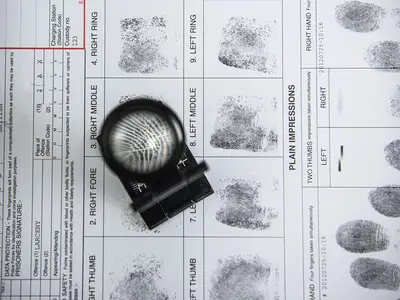Leveraging and Developing Law Enforcement Data Systems and Innovative Tools
Law enforcement needs evidence-based strategies to investigate and address firearm violence incidents that occur in our communities. These include responses and investigations of firearm crimes that occur in private homes, in public spaces, in our schools, and throughout our communities due to interpersonal violence. Further, understanding how law enforcement responds to calls for service and otherwise engages with the communities that it serves is critical to promoting transparency and trust to address firearm violence.
Project Highlights
Studying the National Incident Based Reporting System
RTI is studying the National Incident Based Reporting System (NIBRS) data to identify and recommend strategies to address limitations in identifying gunshot victims. NIBRS collects detailed information about crime incidents but has limitations tying victims to non-fatal firearm injuries. RTI is also using NIBRS data to understand the involvement of firearms in different types of serious, violent offenses, including looking at victim-offender relationships, shootings with multiple victims (i.e., mass shootings), injuries, and type of firearms involved.
Firearm and Toolmarks Policy and Practice Forum
The National Institute of Justice and the Forensic Technology Center of Excellence hosted the 2022 Firearm and Toolmarks Policy and Practice Forum on topics relevant to recent advances in firearm and toolmark examination with a focus on the future. The symposium brought together 685 criminal justice processionals to explore implementation of three-dimensional (3D) imaging technologies, best practices for forensic examination of firearm and toolmark evidence, federal initiatives, gun crime intelligence, black box studies on firearm and toolmark examination, legal challenges to the admissibility of current examination of firearm and toolmark evidence and engineering solutions that will be used in court in the future, implementation of Organization of Scientific Area Committee standards and reporting, uniform language in testimony, and conclusion scales.
The National Case Closed Project
The National Case Closed Project: Supporting Law Enforcement Agencies to Improve Crime Clearance Rates for Fatal and Nonfatal Shootings will help law enforcement agencies respond to, investigate, and clear violent crimes. Through this nationwide program, RTI is supporting law enforcement agencies in improving clearance rates, with an emphasis on fatal and nonfatal shooting cases. We are assessing specific agencies through activities such as policy/training review, case review, and personnel interviews to identify gaps, challenges, and recommendations for improvement. We will then address gaps by providing training and technical assistance by a team of practitioners and researchers who are national leaders in investigations, evidence collection and crime scene processing, prosecution, victim advocacy, and forensic science. A major area of focus will be identifying promising or effective practices for strengthening police-community relations, which can lead to increased trust and participation in the investigative process by victims and witnesses.
An Examination of Firearm Violence Crises Using Crisis Text Line Data: Filling a Critical Gap
This project will help mitigate the high number of firearm-related injuries and deaths that occur daily in the United States. The RTI team will analyze Crisis Text Line data related to multiple types of firearm violence to help inform prevention approaches and improve understanding of gun-related violence. Collaborating with RTI’s Center for Data Science, we will study relationships among firearm violence, mental health crises, and exacerbations introduced by the COVID-19 pandemic to inform CDC’s applied strategies in keeping people safe from firearm-related injuries, death, and crime.
Advance the Use of Technology to Assist Victims of Crime
Through our work to Advance the Use of Technology to Assist Victims of Crime, RTI seeks to improve the support offered to victims of interpersonal violence by expanding and enhancing a technology system that enables mandatory reporting, information sharing, forensic examination documentation, and victim referral among health care providers, law enforcement, prosecutors, and VSPs. The secure web-based platform efficiently combines streamlined and digitized reporting forms with fatality risk assessments and victim consent to be contacted into a consolidated electronic record that is shared with police and social services in a standardized manner.
Mass Attacks Defense Chain
RTI partnered with RAND on a study of mass attacks to help reduce the likelihood of mass shootings and other public attacks and reduce the casualties of completed attacks. The team identified the Mass Attacks Defense Chain, a series of defenses that work together to reduce the probability of mass attacks and their impacts. A resulting online toolkit summarized the project's findings and is available to stakeholders.















